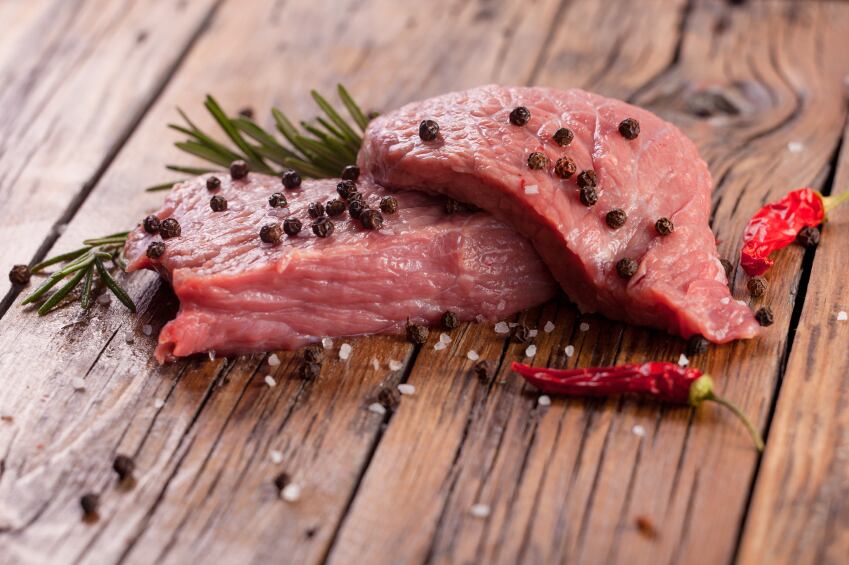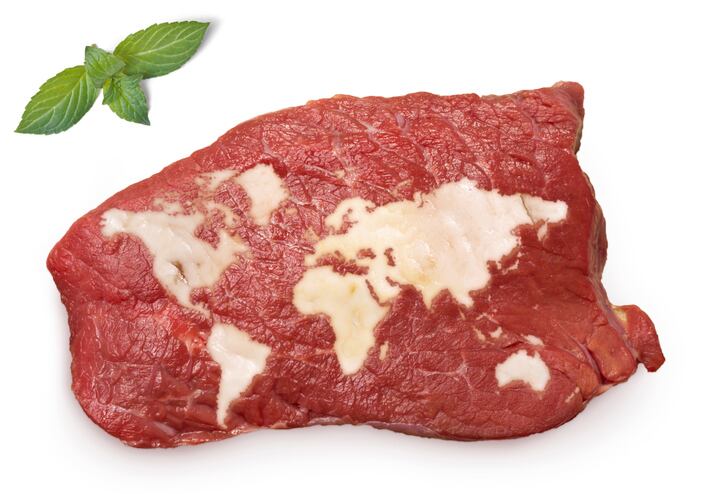Fresh research out of Northwestern Medicine and Cornell University, described as a ‘large’ and ‘carefully analysed’ study by its authors, has once again found a correlation between red meat consumption and a ‘slightly higher’ risk of heart disease and death.
Eating two servings of red meat, processed meat or poultry - but not fish - per week was linked to a 3-7% higher risk of cardiovascular disease, the study found. Eating two servings of red meat or processed meat, including chicken, per week was associated with a 3% higher risk of all causes of death. No association between eating fish and cardiovascular disease or mortality was detected.
"It's a small difference, but it's worth trying to reduce red meat and processed meat like pepperoni, bologna and deli meats," said senior study author Norrina Allen, associate professor of preventive medicine at Northwestern University Feinberg School of Medicine. "Red meat consumption also is consistently linked to other health problems like cancer."
Lead study author Victor Zhong, assistant professor of nutritional sciences at Cornell, added that changing our dietary patterns at a population level could help reduce NCDs like cardiovascular disease. "Modifying intake of these animal protein foods may be an important strategy to help reduce the risk of cardiovascular disease and premature death at a population level.”
What should we be eating?
"Our study shows the link to cardiovascular disease and mortality was robust," Zhong argued.
The study pooled together a ‘large diverse sample’ from six cohorts, included long follow-up data up to three decades, harmonised diet data to reduce heterogeneity, adjusted a comprehensive set of confounders and conducted multiple sensitivity analyses.
It included 29,682 participants, with a mean age of 53.7 years at baseline. Diet data was self-reported by participants, who were asked for a long list of what they ate for the previous year or month.
Limitations of the study are participants' dietary intake was assessed once, and dietary behaviours may have changed over time. In addition, cooking methods were not considered. Fried chicken, especially deep fat-fried sources that contribute trans-fatty acids, and fried fish intake have been positively linked to chronic diseases, Zhong said.
The researchers believe the study reaffirms the need to adopt a diet that is richer in plant-based proteins and seafood.
"Fish, seafood and plant-based sources of protein such as nuts and legumes, including beans and peas, are excellent alternatives to meat," study co-author Linda Van Horn, professor of preventive medicine at Feinberg, suggested.
The case for meat and dairy
But while advice to broaden the variety of protein sources in our diet is generally well-received, other experts have stressed the suggestion that red meat is damaging for our health simply isn’t the whole story.
According to Professor Alice Stanton, who gave the Science Lecture at the 2020 Oxford Farming Conference last month, while red meat has been linked to a higher incidence of cardiovascular diseases and other health issues - including strokes, diabetes mellitus, and certain cancers – not all studies have reported these links.
“What should be communicated is that red meat is good for health, so long as it is eaten in moderation,” the cardiovascular pharmacologist from the Royal College of Surgeons in Ireland believes.
“When you carefully examine the studies, where adult populations were subdivided into groups according to how regularly they ate red meat - those who ate moderate-sized portions of red meat (120g or 4 oz) two to five times weekly, were less likely to die than those that ate large quantities of red meat very regularly, or those that ate meat very rarely if ever.
“The protective effects of red meat is likely to be due to its excellent balance of protein, and because of its richness in key micronutrients such as vitamins A, B12, D and K2, various minerals with iron, zinc and selenium being particularly important, and lastly the long-chain omega-3 fatty acids, EPA and DHA.”
Animal sourced foods appear to be particularly important for children, she continued. “Studies repeatedly show that for the first 1,000 days of life, from conception until the second birthday, protein, iron, vitamin B12, EPA and DHA intake contribute importantly to normal brain and body development. The consequences of deficiencies in these nutrients in childhood can be severe and irreversible, including stunting, reduced cognitive ability and school performance.”
Source
'Associations of Processed Meat, Unprocessed Red Meat, Poultry, or Fish Intake With Incident Cardiovascular Disease and All-Cause Mortality'
JAMA Internal Medicine
DOI: 10.1001/jamainternmed.2019.6969
Authors: Victor W. Zhong, Linda Van Horn, Philip Greenland, Mercedes R. Carnethon, Hongyan Ning, John T. Wilkins, Donald M. Lloyd-Jones, Norrina B. Allen.




